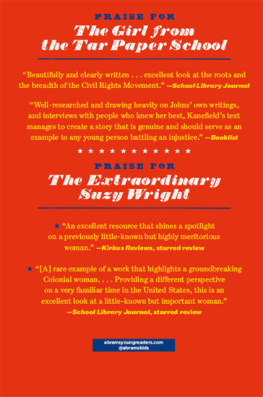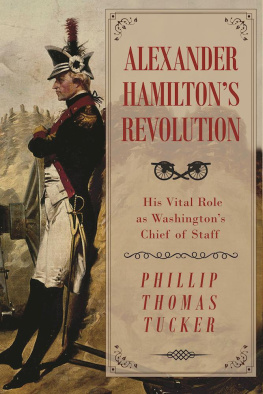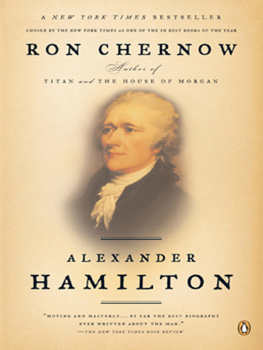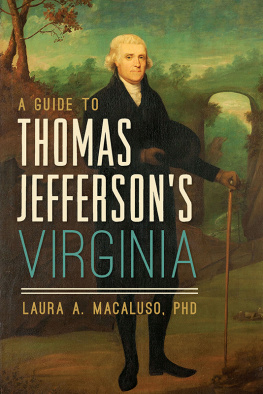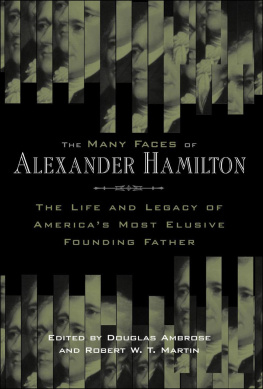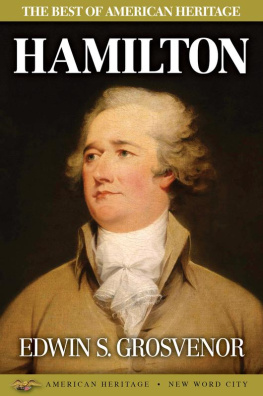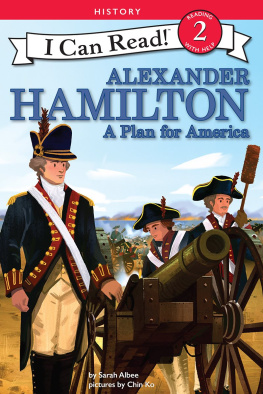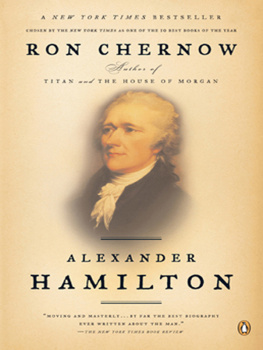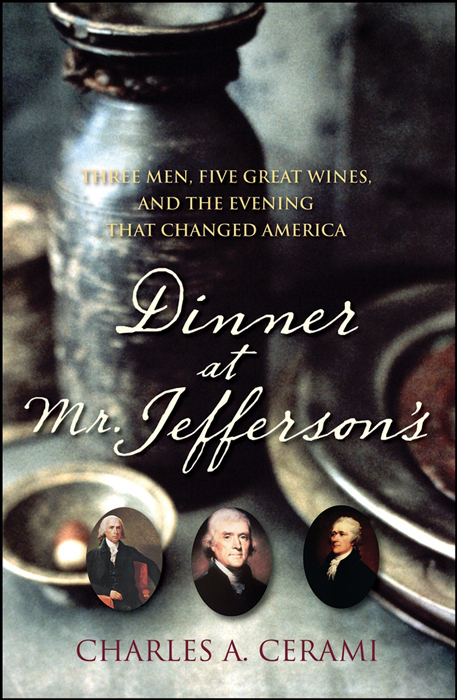Dinner at Mr. Jeffersons
Previous works by Charles A. Cerami
Jeffersons Great Gamble : The Remarkable Story of Jefferson, Napoleon and the Men behind the Louisiana Purchase
Young Patriots : The Remarkable Story of Two Men, Their Impossible Plan and the Revolution That Created the Constitution
Benjamin Banneker : Surveyor, Astronomer, Publisher, Patriot
Crisis: The Loss of Europe
Alliance Born of Danger : America, the Common Market, and the Atlantic Partnership
Copyright 2008 by Charles Cerami. All rights reserved
Published by John Wiley & Sons, Inc., Hoboken, New Jersey
Published simultaneously in Canada
Illustrations on pages vi, 16, 19, 22, 58, 146, 147, 226 reproduced from the collections of the Library of Congress.
No part of this publication may be reproduced, stored in a retrieval system, or transmitted in any form or by any means, electronic, mechanical, photocopying, recording, scanning, or otherwise, except as permitted under Section 107 or 108 of the 1976 United States Copyright Act, without either the prior written permission of the Publisher, or authorization through payment of the appropriate per-copy fee to the Copyright Clearance Center, 222 Rosewood Drive, Danvers, MA 01923, (978) 750-8400, fax (978) 646-8600, or on the web at www.copyright.com . Requests to the Publisher for permission should be addressed to the Permissions Department, John Wiley & Sons, Inc., 111 River Street, Hoboken, NJ 07030, (201) 748-6011, fax (201) 748-6008, or online at http://www.wiley.com/go/permissions .
Limit of Liability/Disclaimer of Warranty: While the publisher and the author have used their best efforts in preparing this book, they make no representations or warranties with respect to the accuracy or completeness of the contents of this book and specifically disclaim any implied warranties of merchantability or fitness for a particular purpose. No warranty may be created or extended by sales representatives or written sales materials. The advice and strategies contained herein may not be suitable for your situation. You should consult with a professional where appropriate. Neither the publisher nor the author shall be liable for any loss of profit or any other commercial damages, including but not limited to special, incidental, consequential, or other damages.
For general information about our other products and services, please contact our Customer Care Department within the United States at (800) 762-2974, outside the United States at (317) 572-3993 or fax (317) 572-4002.
Wiley also publishes its books in a variety of electronic formats. Some content that appears in print may not be available in electronic books. For more information about Wiley products, visit our web site at www.wiley.com .
ISBN 978-0-470-08306-2
Remembering the incomparable Jean Keats
A reproduction of Charles Wilson Peales portrait of Secretary of State Jefferson, painted the year after Jeffersons return from France.
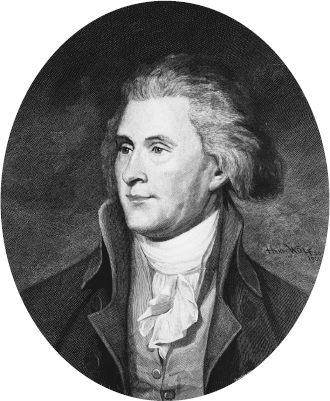
Acknowledgments

My first thought is always to recognize my agent and friend, Bob Silverstein, as a major contributor, for this book would not have come to life without his active role. Bobs uncanny sense of what turns an attractive project into a realistic book played its usual part in guiding my steps, and in making the whole process enjoyable.
Hana Umlauf Lane was clearly born to be a superb editor. I could cite obvious merits, such as a remarkable memory for spotting points that seem repetitious, and an unerring feel for the mot propre . But much more significant is her ability to suggest improvements without distorting the original thought. This skill gives a writer the pleasant reassurance that he is flying with just the right pilot.
I am also grateful to Rachel Meyers for doggedly continuing with pinpoint reading until the last possible momentsand coming up with suggestions that were put to good use.
David Robinson helped me to profit from the splendid Rare Books section of the Library of Congress. Dr. Gerard W. Gawalt, a historian at that same great library did me a huge favor by suggesting that there was more to be learned from Professor Kenneth R. Bowling, who was on a special assignment at George Washington University. Professor Bowling is, to my mind, the unquestioned authority on the Dinner-Table Compromise. By opening his extensive library and collection of facts to me, this leading authority on my book subject provided advantages that I could not have found in any other way. I deeply appreciate his openhanded friendliness.
The Lauinger Library at Georgetown University, my own alma mater, was, as usual, a primary resource, with several city blocks worth of perfectly indexed resources on just the subjects I needed. But I admit to also having been impressed by the fine Eisenhower Library at Baltimores Johns Hopkins University and overwhelmed by the masses of material at the New York Public Library.
But back in Washington, a quieter and simpler resource, the well-hidden Senate Library, located under one of the Senate Office Buildings, is even more special to me becausenot for the first timean expert lady named Zoe Davis went to considerable trouble on my behalf, this time coming up with many pages of voting records that showed exactly how the hotly disputed Assumption Bill swung in Hamiltons favor some 217 years ago.
And the astonishing letter proving how carefully Alexander Hamilton arranged the steps leading to the U.S. Coast Guardand how pertinent he is still considered therewas found for me by the guards historian, Robert M. Browning, bringing to life the fact that Hamilton was indeed the genius who seemed to learn and to dominate every challenging subject that he encountered. The letter, which is reproduced in appendix B, almost makes us hear Hamiltons voice as he conveys his own principles to his new recruits.
Finally, it is a duty and pleasure to thank my daughter and son-in-law, Victoria and James Huckenpahler, and my dearest friend, Mary Ann Gale, for their patient understanding during those exacting hours that somehow resulted in this book.
Introduction

JUST BACK FROM FIVE IDYLLIC YEARS in France, eager for a quiet period at his Monticello home, Thomas Jefferson was jarred by the news that George Washington wanted him to be his secretary of state. When he took a risk by accepting the post without being sure of Washingtons political views, he soon found that it had been a mistake.
On reaching the temporary capital, New York City, Jefferson was stunned to find that a majority of the states people were probably already tired of democracy. The tone of their conversation sounded a distinct preference for the comfort of royal rule. And after he reported for work, he realized that Alexander Hamilton, whom he saw as a monarchist at heart, was on his way to becoming a one-man government, usually able to get his way with Washington and ready with a new plan for every conceivable need. We find these well-known people to be totally different from the way they are usually portrayed, behaving oddly, often close to desperation.
Jefferson was a genius who could spread enchantment with words that had never been used quite that way before. But he and his close friend James Madison could not make Washington see why they suspected Hamilton of wanting to create a monarchy in America. And they feared that one of the younger mans proposals could put him in a position to accomplish just that. Blocking Hamilton, however, seemed as dangerous as letting him win, for the clash might wreck the young countrys financial standing in the world, which Jefferson called the Ultimate Calamity. It would have stifled the nations growth, mangled its future.


